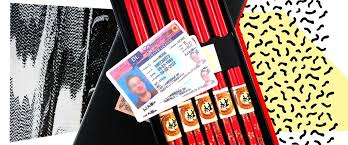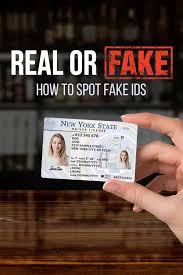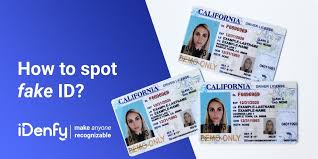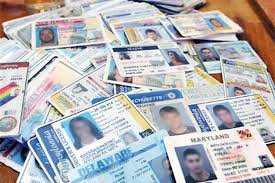fake identity card generator
Introduction
In today’s increasingly digitized world, the demand for identity verification and personalization continues to rise, opening a controversial niche market: fake identity card generators. These tools provide individuals with the capability to create counterfeit IDs for various purposes, ranging from novelty and entertainment to illegal activities. However, the complexities behind fake ID creation, its market dynamics, and the diverse set of users make this topic both intriguing and challenging to explore.
This guide offers a comprehensive look into fake identity card generators, focusing on the technology behind them, their features, the current state of the market, and the ethical concerns surrounding their use. While these tools serve a legitimate market (such as prop creation in entertainment industries), they can also facilitate illegal practices like identity theft and fraud. By exploring the broad scope of fake ID generators, we aim to shed light on the various dimensions of this controversial tool.
Chapter 1: What is a Fake Identity Card Generator?
A fake identity card generator refers to software or a tool that allows users to create realistic-looking fake IDs. These tools typically offer customization options where users can input personal details such as name, birthdate, and address while selecting templates for a range of identity cards, such as driver’s licenses, student IDs, employee badges, or government-issued IDs. Fake ID generators can often simulate security features like holograms, watermarks, and barcodes to further enhance the legitimacy of the final product.
How Fake ID Generators Work
At its core, a fake ID generator works by providing users with an interface to input specific data and then using sophisticated templates and design tools to create the final digital or printed version of the ID. Some common features include:
- Pre-made Templates: Fake identity card generators offer a variety of templates that mirror the appearance of genuine ID cards from various institutions or countries.
- Customizable Elements: Users can change text, colors, and images (such as headshots) on the fake ID to personalize it.
- Advanced Design Tools: Some tools incorporate features that allow users to mimic security features like holograms, ultraviolet (UV) elements, microprinting, and barcodes.
- Export and Printing Options: Once the ID is created, the user can export it as a high-resolution image file or print it directly from the software.
The sophistication of these generators can vary greatly, from simple online tools for creating novelty or gag IDs to advanced software that requires professional knowledge of design and security features.
Chapter 2: Features of a Fake Identity Card Generator
Fake identity card generators vary in quality, and their features cater to different audiences and purposes. Some of the key features include:
1. User-Friendly Interface
Most fake ID generators are designed to be easy to use, even for individuals with limited technical expertise. Users can easily navigate through different templates, input data, and make adjustments without requiring graphic design knowledge.
2. Template Library
A wide array of templates is available, covering ID designs from different countries, organizations, and sectors. This feature allows users to select from government IDs, school IDs, and corporate badges. High-quality generators often offer templates that closely resemble official documents, though legally distinct enough to avoid immediate detection.
3. Advanced Image Editing
Some fake ID generators come with built-in image editing tools that allow users to crop, resize, or adjust the appearance of their photos to fit the ID requirements. They may also offer background removal features or tools for adding background graphics that mimic genuine ID security features.
4. Security Feature Simulation
High-end fake ID generators can simulate security features such as holograms, watermarks, microtext, and magnetic strips or barcodes. These are particularly important for creating IDs that appear legitimate under closer inspection.
5. Output Quality
The quality of the final product varies depending on the sophistication of the generator. Some can produce high-resolution IDs that closely resemble actual documents, while others may produce low-quality images meant for novelty use.
6. Legal Disclaimers and Usage Warnings
Legitimate websites or services offering fake ID generators usually display prominent legal disclaimers. These warnings emphasize that the fake IDs are intended for novelty purposes only and should not be used for illegal activities.
Chapter 3: Market Analysis for Fake Identity Card Generators
The market for fake identity card generators is both niche and multifaceted. It ranges from underground markets operating on the dark web to legitimate businesses offering novelty or entertainment-based solutions. While the creation and distribution of fake IDs can be illegal in many jurisdictions, the market continues to thrive due to demand from various user groups.
1. Underground and Illicit Markets
A significant portion of fake ID generators operates in the underground economy. These tools are often sold or traded on the dark web, where users can purchase fake IDs for identity theft, fraud, or illegal access to restricted areas.
2. Legal and Entertainment Sectors
Not all fake ID generators are used for illegal purposes. Some cater to industries where props and IDs are necessary for movies, theater productions, or promotional events. Additionally, fake ID generators are sometimes used for creating novelty cards or for entertainment purposes (such as gag gifts).
3. Regional Popularity
The demand for fake ID generators varies significantly by region. For example:
- In North America, fake ID generators are often sought after by underage individuals attempting to gain access to age-restricted venues (like bars or clubs).
- In some European countries, fake ID demand is more associated with illegal immigration or labor fraud.
- In Asia, fake identity cards are sometimes linked to financial crimes, including credit card fraud and synthetic identity schemes.
4. Regulations and Crackdowns
Many countries have enacted strict laws that prohibit the sale, distribution, or use of fake IDs. In countries like the United States and the United Kingdom, law enforcement agencies often target websites and individuals involved in selling fake ID generators. As a result, many fake ID services operate anonymously, using cryptocurrency and other untraceable methods for transactions.
Chapter 4: Target Audience for Fake Identity Card Generators
Understanding the target audience for fake ID generators requires considering both legal and illegal user segments. Broadly, the market can be broken down into several key groups:
1. Students and Underage Individuals
One of the largest user bases for fake ID generators consists of underage individuals, particularly college students, who want to access age-restricted areas such as bars, clubs, and concerts. This group is motivated by the desire for social freedom and rebellion against age-based restrictions.
2. Criminal Enterprises
Identity fraud is a major issue worldwide, and fake ID generators play a significant role in facilitating crimes such as financial fraud, illegal immigration, and identity theft. Criminal groups often use fake IDs to create synthetic identities for use in various illegal schemes, including opening bank accounts or applying for credit cards.
3. Entertainment Industry
The entertainment industry relies on prop designers who need to create realistic-looking IDs for movies, television shows, and live productions. In this case, fake ID generators are legal and serve a creative purpose, but they require high levels of authenticity.
4. Collectors and Hobbyists
Some people collect novelty or historical identity cards as a hobby. For these collectors, fake ID generators offer a way to create personalized cards or replicas of famous or defunct IDs (e.g., old student ID cards from prestigious universities).
5. Event Organizers
In certain cases, event organizers may use fake ID generators to create personalized badges, passes, or entry cards for concerts, festivals, or other large-scale events. Though these are not technically “fake IDs” in the legal sense, they are generated using similar software tools.
Chapter 5: Risks and Ethical Considerations
While fake identity card generators offer a range of creative possibilities, they also come with significant risks, both legal and ethical.
1. Legal Risks
In most countries, creating, distributing, or using fake IDs is a serious crime. Penalties can include hefty fines, imprisonment, and a criminal record that can have long-lasting consequences. Individuals caught using fake IDs can face arrest, and websites that offer these services often face legal shutdowns.
2. Ethical Implications
Even when used for novelty purposes, fake IDs can have unintended consequences. They can contribute to identity theft, fraud, and other crimes, putting innocent people at risk. There is also the ethical dilemma of deception, as fake IDs are inherently created to mislead or impersonate someone.
3. Reputation Damage for Legitimate Businesses
Companies that offer fake ID generators for legitimate purposes, such as prop creation or novelty entertainment, must carefully navigate their reputation. If their tools are used for illegal purposes, they risk legal action and negative public perception.
Chapter 6: Alternatives to Fake Identity Card Generators
For individuals seeking legitimate means of creating personalized identity cards, there are several legal alternatives to fake ID generators. Many companies specialize in producing custom IDs and badges for corporate, educational, or entertainment purposes. These services provide legally compliant products that do not carry the risks associated with fake ID generators.
1. Professional ID Card Printing Services
Several businesses offer ID card printing services for companies, schools, and organizations. These services provide high-quality, legally compliant identification cards that can be customized with logos, personal information, and security features.
2. Graphic Design Software
For users who want to create personalized ID cards for fun or artistic purposes, graphic design software like Adobe Photoshop or Canva provides the tools needed to design custom cards without crossing legal boundaries. However, these should not be used for fraudulent purposes.
Conclusion
Fake identity card generators are a fascinating yet controversial tool. While they have legitimate uses in entertainment and creative industries, their potential for misuse in illegal activities makes them a subject of legal scrutiny. As technology continues to evolve, the sophistication of fake ID generators will likely increase, posing both opportunities and challenges for various sectors.
Understanding the features, market dynamics, and ethical considerations surrounding these tools is crucial for anyone interested in this field. Whether you’re exploring the topic for academic reasons or are curious about its market impact, this guide provides a detailed overview of the world of fake ID generators.
 Fake ID buyers
Fake ID buyers
 Scannable Fake ID
Scannable Fake ID
 Custom Fake Texas ID
Custom Fake Texas ID
